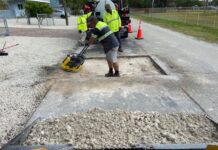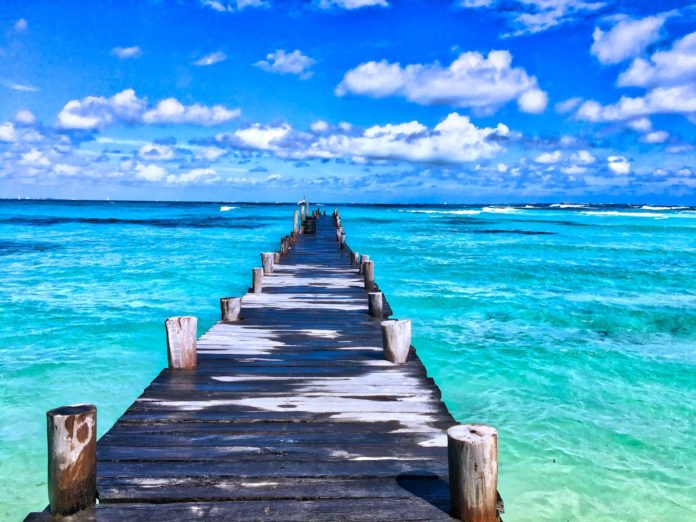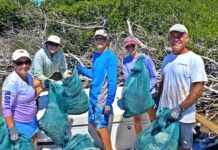The popular complaint after Hurricane Irma went something like this: “Those so-and-so insurance companies have been collecting my premiums for years and ONLY gave me (insert number here) dollars! I’m through with them! As soon as I pay off my house, I’m dropping insurance!”
The data, however, paints a different picture. The Keys Weekly Newspaper reached out to both the Citizens Property Insurance Corporation and National Flood Insurance Program to compare the number of policies pre- and post-Hurricane Irma. There are about 2,400 fewer wind policies in the Keys, and about 500 more flood insurance policies now than before Hurricane Irma struck the Keys in 2017.
According to Monroe County, there are about 55,000 “housing units” in the Keys, of which about 1,200 were destroyed, and 3,000 suffered major damage during Hurricane Irma. Post-Irma, that means roughly half of Keys home are insured against flood, and only about a quarter of Keys homes are insured against wind.
That suggests that Keys homes fared well in the wind and homeowners think they no longer need it, and that a new, smaller sector of homeowners decided that a flood insurance policy is prudent. But, in interpreting the data, there are a couple of factors to recognize. First, any homeowner with a mortgage is required to carry wind and flood insurance. Two, not everyone is insured through these carriers (Citizens and NFIP), and others are self-insured. And the data don’t reveal the number of domiciles knocked down by the storm or the number that are currently being rebuilt.
In a very informal Facebook poll of Keys homeowners about “going naked,” or self-insuring, at least one person replied along the lines of “I would if I could,” indicating that he or she still is required to have insurance due to a mortgage. But many Keys homeowners are electing to self-insure. They do this by creating a savings account dedicated to emergencies such as hurricane repairs.
“If you’re not prepared for a storm, not having insurance is a terrible decision. I’m prepared for it with a ‘rainy day fund,’ so it makes sense,” said Leslie Christensen of Marathon.
She said she ran the numbers based on the size of their Middle Keys home and what it would cost to rebuild, versus how long they plan to own the property.
“It’s a financial choice,” she said. “When you’re looking at the money you’re saving, over the years you own the property, it made sense to me.”
She said she plans to own this particular home forever. She also noted that because she doesn’t have the extra expense of insurance, she can afford to keep rent low in case she ever wants to rent it out.
For homeowners who drop insurance, and then save what they would have paid in premiums, they are wagering that the Keys will be safe from a hurricane until they have enough in the bank to make repairs — i.e., years.
“If the hurricane hits in year two, when you don’t have much savings, and the roof is ripped off and your walls fall over, you don’t have enough money to make repairs or rebuild,” said broker Will Langley of Berkshire Hathaway.
Langley said insurance is a gamble.
“You’re gambling that a disaster is going to happen or not. There are circumstances when it makes sense to drop insurance, and other circumstances when it makes sense to have insurance. For every person, it’s going to be a gamble,” Langley said.
“If your $40,000 roof blows off, and it’s not going to change your life to write a check to get it fixed, then I understand not having insurance,” he said. “Personally, going into Irma with full coverage, I felt better.”
The type of Keys home dictates what type of insurance is needed. Stilt-home owners who have nothing to lose below stairs may elect to have only wind insurance. Ground level homes with concrete roofs may only need flood insurance. The price for homeowners insurance — the type that covers fire and theft — is so low (less than $1,000 a year, usually) it makes sense to have it.
There is one saving grace for self-insured Keys homeowners — casualty losses. While it doesn’t put cash in their pockets, it is possible for taxpayers to deduct losses from taxable income.
“Let me explain it this way,” said Sue Corbin, a Marathon accountant. “If you purchased a sofa for $2,000 that was worth $1,000 before the storm, and zero after, you can claim a loss on the itemized deduction schedule, which in turn reduces your taxable income.”
While homeowners are worried about their financials, officials are worried about the Keys’ resiliency, or the islands’ ability to bounce back after a hurricane.
“I don’t think it should be an ‘either- or’ proposition,” said Monroe County Commissioner Heather Carruthers, a founder of Fair Insurance Rates in Monroe. “If people can’t afford the insurance rates, can’t afford to live here, then that affects our resiliency as well. We need Keys living to be sustainable and affordable.”
 CITIZEN’S WIND INSURANCE
CITIZEN’S WIND INSURANCE
15,594: PRE-IRMA policy count as of Jan. 31, 2017
13,079: POST-IRMA: policy count as of May 31, 2019
Source: Citizens Property Insurance Corporation
 FLOOD INSURANCE:
FLOOD INSURANCE:
30,121: PRE-IRMA policy count as of Aug. 2017
30,639: POST-IRMA policy count as of April 30, 2019
Source: National Flood Insurance Program























